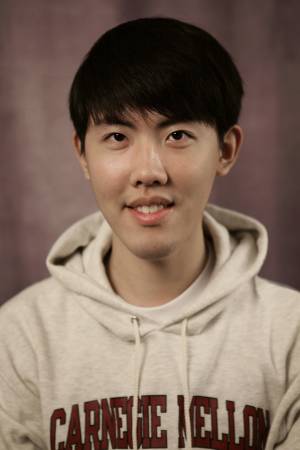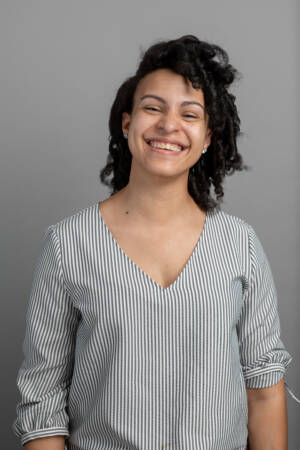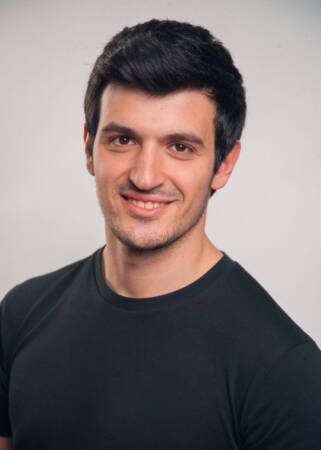Acoustic Neural 3D Reconstruction Under Pose Drift
Abstract: We consider the problem of optimizing neural implicit surfaces for 3D reconstruction using acoustic images collected with drifting sensor poses. The accuracy of current state-of-the-art 3D acoustic modeling algorithms is highly dependent on accurate pose estimation; small errors in sensor pose can lead to severe reconstruction artifacts. In this paper, we propose an algorithm [...]
Open-World Policy Steering for Robot Manipulation
Abstract: Generative robot policies have shown remarkable potential in learning complex, multimodal behaviors from demonstrations. However, at runtime, they still exhibit diverse failures ranging from task incompletion (e.g., toppling or dropping objects) to misaligned behaviors (e.g., placing the gripper inside of a cup of water). Instead of constantly re-training the policies with new data, we [...]
Faculty Candidate Talk: Karl Pertsch
Talk Title: Unlocking Scalable Robot Learning in the Real World Abstract: Many domains of machine learning, from language modeling to computer vision, have recently undergone a shift towards generalist models, whose broad generalization abilities are fueled by large and diverse real-world training datasets and high-capacity model architectures. In robotics, however, it has been challenging to [...]
Deep 3D Geometric Reasoning for Robot Manipulation
Abstract: To solve general manipulation tasks in real-world environments, robots must be able to perceive and condition their manipulation policies on the 3D world. These agents will need to understand various common-sense spatial/geometric concepts about manipulation tasks: that local geometry can suggest potential manipulation strategies; that changes in observation viewpoint shouldn't affect the interpretation of [...]
Faculty Candidate Talk: Aja Carter
Title: Paleorobotics: Design Principles 540 million years in the making Abstract: Bioinspiration has provided key design insights in many fields, particularly in robotics, where there has been an explosion of interest in quadrupedal robot “dogs” and bipedal humanoid robots. However, the designs prescribed by only considering living animals are a small subset of available designs; [...]
Deformation-Aware Manipulation: Compliant and Geometric Approaches for Non-Anthropomorphic Hands
Abstract: Soft robot hands offer compelling advantages for manipulation tasks, including inherent safety through material compliance, robust adaptation to uncertain object geometries, and the ability to conform to complex shapes passively. However, these same properties create significant challenges for conventional sensing and control approaches. This talk presents approaches to bridging advances in geometric learning and [...]
Faculty Candidate Talk: Carlo Sferrazza
Title: The Path to Humanoid Intelligence Abstract: Humanoid robots represent the ideal physical embodiment to assist us in the diversity of our daily tasks and human-centric environments. Driven by substantial hardware advancements, progress in artificial intelligence (AI), and a growing demand for adaptable automation, this vision appears increasingly feasible. Yet, to date, humanoid intelligence remains [...]
Integrating Safety Across the Learning-Based Perception Pipeline: From Training to Deployment
Abstract: Robots operating in safety-critical environments must reason under uncertainty and adapt to novel situations. However, recent advances in data-driven perception have made it increasingly difficult to provide formal safety guarantees, particularly when systems encounter out-of-distribution or previously unseen inputs. For such systems to be safely deployed in the real world, we need data augmentation [...]
Physical Intelligence and Cognitive Biases Toward AI
Abstract: When will robots be able to clean my house, dishes, and take care of laundry? While we source labor primarily from automated machines in factories, the penetration of physical robots in our daily lives has been slow. What are the challenges in realizing these intelligent machines capable of human level skill? Isn’t AI advanced [...]
Robotics Institute Semi-formal
Hello all Robotics Institute faculty, students, visitors and staff, You and a guest are cordially invited to attend The Robotics Institute Semi-formal









